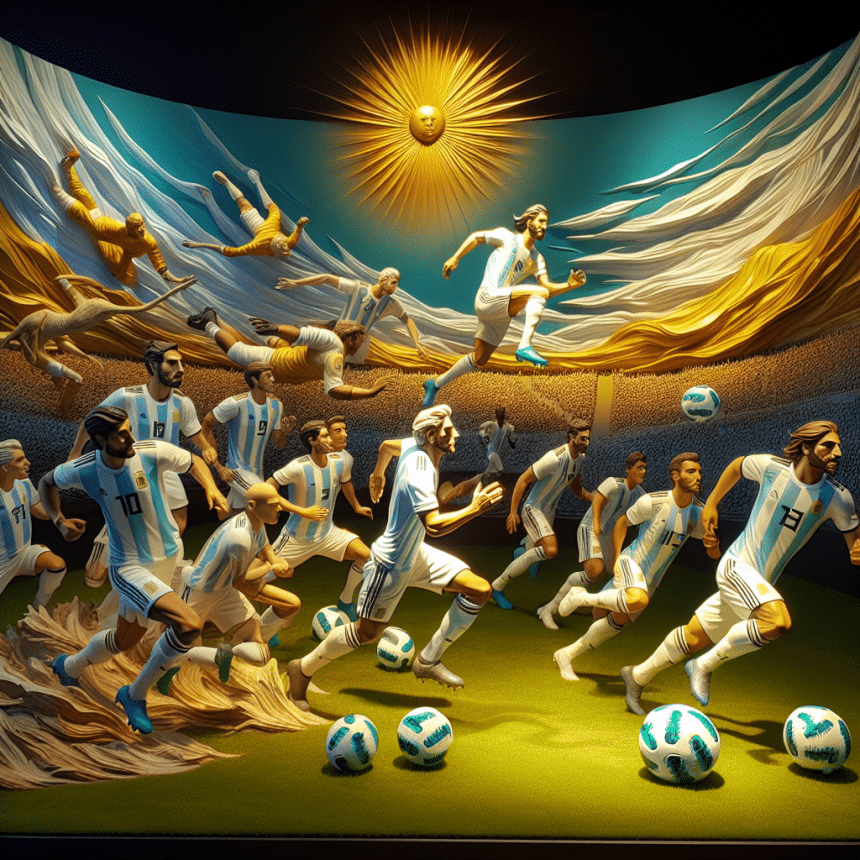Just days after their 1-0 defeat to Argentina in the 2024 Copa America final in Miami, Colombia defender Davinson Sanchez opened up about what he felt was the deciding factor in the closely contested match.
In an interview with D Sports in Colombia, Sanchez pointed out that Lionel Messi’s departure in the 66th minute due to injury had unexpectedly strengthened Argentina’s performance. “Messi’s exit was key because (Nicolas Gonzalez) came in with a bit more physical endurance,” Sanchez remarked. “At that moment, they took away our momentum because we were playing a very good game on the right side… the game became more balanced. They didn’t dominate us, but it became more even.”
The question that arises is whether Argentina truly thrived without Messi, who is often considered one of the greatest players of all time. The reigning world champions and consecutive Copa America winners have been quietly preparing for a future without the eight-time Ballon d’Or winner, who celebrated his 37th birthday in June. Messi was recently called up to feature for Argentina in the upcoming qualifiers against Venezuela and Bolivia on October 10 and October 15.
With Messi and Angel Di Maria, who retired from international football over the summer, absent from the squad, Argentina faced a unique challenge. Coach Scaloni acknowledged the irreplaceable nature of these two players during an interview with Argentine journalist Juan Pablo Varsky. “They are irreplaceable players,” Scaloni stated. “It’s impossible to replace them. They’re unique players. In the case of Di Maria who will no longer be part of the team, it’s not logical to try and find a player who does the same things as him.”
Juventus winger Nicolas Gonzalez stepped in to fill Di Maria’s shoes in the recent matches against Chile and Argentina. The versatile 26-year-old has been a utility player for Scaloni, capable of playing on either wing, similar to Di Maria, and even taking on the daunting task of replacing Messi.
Scaloni emphasized that Argentina’s tactical identity, rather than new personnel, will be the key to coping with Messi’s absence. “It’s difficult for any team to not be dependent on Leo,” Scaloni explained. “Any team that he’s on will depend a lot on him. He’s a unique player. It’s logical. The strength of this team is that we have a style of play that doesn’t change based on who’s on the field.”
The midfielders, in particular, play a crucial role in Argentina’s tactical setup. “They are used to moving into spaces that other traditional midfielders may not be comfortable in,” Scaloni said. “They can play in between the lines and they know that in today’s game you have to have two or three different roles. Most importantly, they’re not afraid of the ball. They all want to be on the ball.”
Rodrigo De Paul is one such midfielder who steps up in Messi’s absence. The Atletico Madrid player, known for his defensive skills and work rate, has seamlessly transitioned into a more central role. Despite starting his career as an attacking midfielder at Racing in Argentina, De Paul has adapted to become a linchpin in Argentina’s tactical system.
As Argentina navigates the challenges of life without Messi and Di Maria, the team’s ability to maintain its tactical identity and innovative approach will be crucial in maintaining their winning ways on the international stage.






